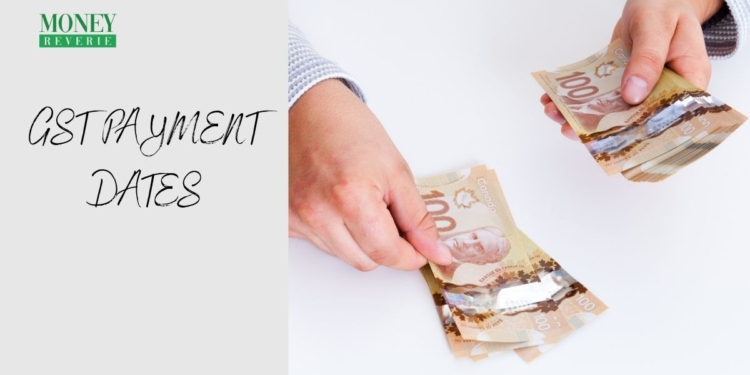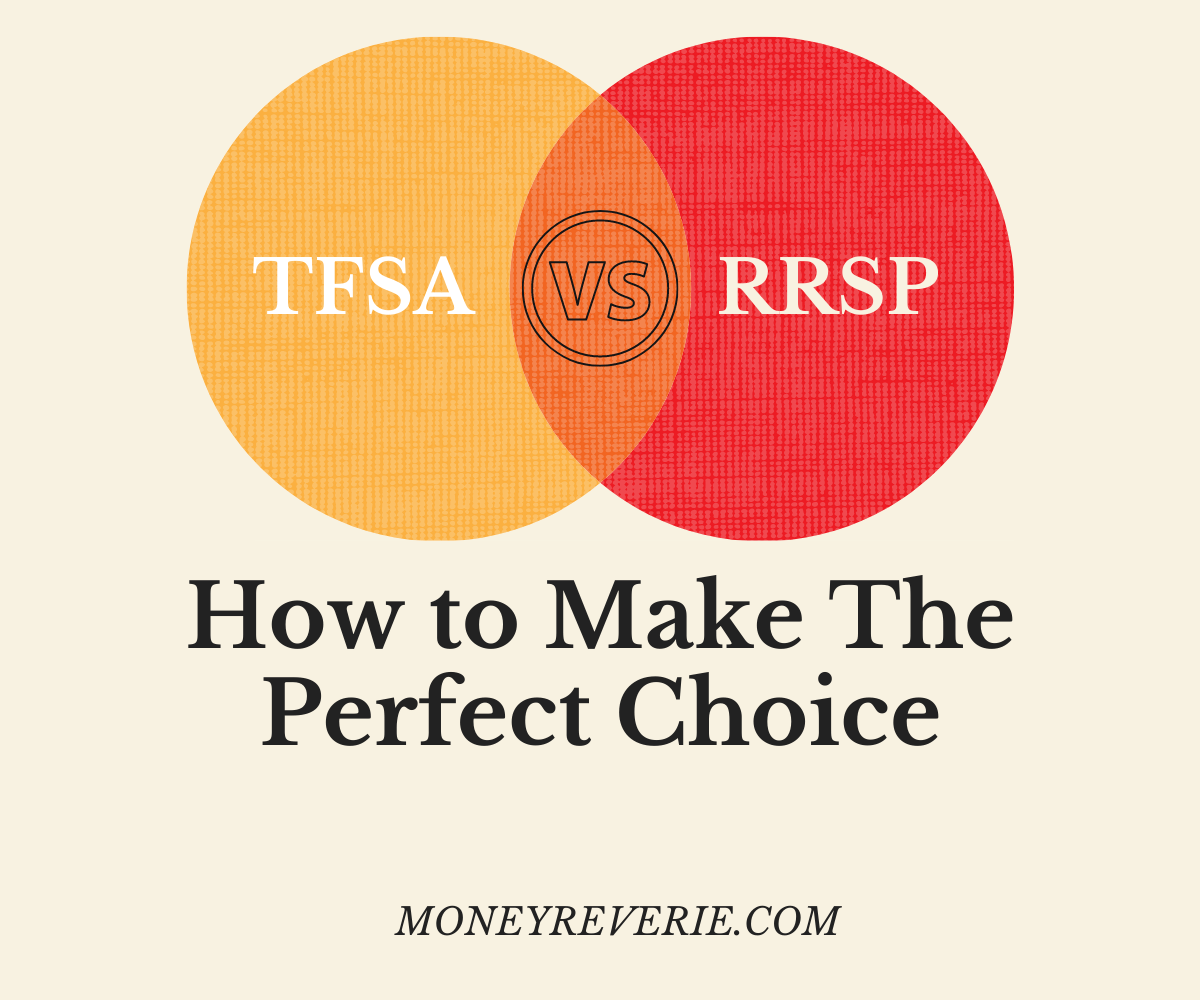The substantial increase in prices for various items across Canada can be overwhelming, especially when it leads to higher taxes. Given that GST/HST taxes apply to nearly every purchase made in the country, each price increase becomes a significant burden to bear.
Fortunately, the GST/HST tax credit was introduced to assist low-income Canadians in offsetting the GST or HST they pay. GST payments are usually disbursed quarterly on the 5th of January, April, July and October and the next GST payment date is October 4, 2024.
In this detailed guide, we will explore more information about the GST/HST tax credit, including payment amounts, who is eligible for GST, how to apply for GST payments and the GST payment dates for 2024.
Key Takeaways
- The next GST payment date for 2024 is October 4, 2024.
- You will be automatically considered for the GST/HST credit as long as you file your tax return.
- How much GST you will receive depends on your net income and the number of children. You can receive up to $496 if you’re single, $650 if you’re married, and an extra $171 per child.
- You can receive your GST tax credit by direct deposit or by mail.
GST Payment Dates 2024
The GST tax credit is paid out four times yearly on the fifth day of April, July, October, and January. You can receive the payment directly into your bank account or a cheque in your mail.
The CRA has stated the following as the GST dates for 2024:
- January 5, 2024
- April 5, 2024
- July 5, 2024
- October 4, 2024
If you received two payments in your bank account on July 5, 2023, you must have likely received the Canada Grocery Rebate (which is also issued on the same day).
If you do not receive your GST/HST credit payments on the scheduled GST payment dates, wait for 10 working days. It is not uncommon to wait for your GST credit after the scheduled GST dates. However, if you still do not receive it after 10 working days, please contact the Canadian Revenue Agency (CRA).
How Much is GST Tax Credit in Canada?
Your GST amount depends:
- Your net income (for single individuals) or your family’s net income (if you have a spouse or common-law partner)
- The number of children under 19 registered for Canada Child Benefits (CCB) and GST/HST tax credit.
For the 2022 base year (July 2023 to June 2024), you can expect to receive:
- $496 if you are single
- $650 if you are married or have a common-law partner
- $171 for each child under the age of 19
Check out the GST/HST payment charts for more information on how much you could receive. You can also use the Canada Revenue Agency calculator to accurately ascertain your GST/HST credit.
Check out how to get other free money from the Canadian government.
What is the Maximum Income Threshold for GST/HST Tax Credit?
Here’s a table showing the GST income threshold and amounts for the 2022 base year (July 2023 to June 2024):
Family structure Adjusted family net income Single person $52,255 Single parent with one child $58,755 Single parent with two children $62,175 Single parent with three children $65,595 Single parent with four children $69,015 Married/common-law couple with no children $55,335 Married/common-law couple with one child $58,755 Married/common-law couple with two children $62,175 Married/common-law couple with three children $65,595 Married/common-law couple with four children $69,015
If your adjusted family net income is equal to or exceeds these amounts, you will not be entitled to receive the Canada GST payments.
You can check out other benefits for low-income families in Canada.
Who is Eligible For GST Credit?
To be eligible for the GST/HST credit, you must:
- Be at least 19 years of age
- Be a Canadian resident during the month before the CRA makes a payment, and at the beginning of the month, the CRA makes a payment for income tax record purposes
However, if you are under the age of 19, to qualify for GST tax credit, you must:
- Have (or had) a spouse or common-law partner
- Be (or were) a parent and live (or lived) with your child
Please note that in addition to meeting these GST credit eligibility requirements, you must have a valid Social Insurance Number (SIN) and be below the maximum income threshold.
If you are a parent in a shared custody situation, you may be eligible for half of that child’s GST/HST credit.
For more information, check the GST/HST tax credit – Eligibility.
How to Apply for GST Credit
There’s no formal application for the GST/HST credit. You don’t have to complete and submit any form to apply.
The primary step is to file your taxes annually. This way, the CRA will be able to determine your eligibility automatically.
Check out these free tax software to file your taxes in Canada.
How to Apply for GST Tax Credit as a Newcomer to Canada
If you are a new Canadian resident who hasn’t filed a tax return before, here are the steps you should follow to complete your GST/HST application:
- File Form RC66 if you are a parent of at least one child.
- Complete Form RC151 if you don’t have children.
- Forward the form to the CRA office located in your province.
For more information, you can check through the GST/HST tax credit – Apply section on the Federal website.
How to Claim the GST Credit for Your Child
If you registered for the Canada Child Benefit (CCB), you might have already received your child’s GST payments. However, you must manually register your child to receive the GST/HST credit if you didn’t register for the CCB.
Also, you need to register if you have adopted a child. Follow these steps to claim your child’s GST/HST credit:
- Step 1: Log in to the CRA My Account.
- Step 2: Navigate to “Apply for child benefits.”
- Step 3: Confirm your details.
- Step 4: Add your child’s details.
You can check your application’s status through the CRA My Account as soon as you apply. Also, you can claim your child’s GST/HST credit through the following steps:
- Step 1: Fill out Form RC66, Canada Child Benefits Application.
- Step 2: Send the filled form by mail to the CRA office.
When is the Next GST Payment?
The next GST payments for 2024 will come out on October 4, 2024. GST payments are usually disbursed on the 5th day of every quarter, i.e. January, April, July, and October.
How Will I Get GST Payments?
If you’ve set up direct deposit through your online bank, receiving GST/HST payments is straightforward. Your Canada GST payments will show up in your bank account under the labels “GST/HST tax credit” or “Canada FPT” (Federal-Provincial-Territorial).
However, if you opted for a cheque instead, you can expect your payments on the GST Cheque dates. Keep in mind that GST cheques take a bit longer to process. Expect your GST payment to arrive within 10 business days. If it doesn’t, don’t hesitate to reach out to the CRA for assistance.
GST Payment Increase for 2024
To support Canadians affected by inflation, the Canadian government is issuing a GST increase with an additional $2.5 billion to support 11 million Canadian individuals and families through GST credit payments.
This will double the amount eligible individuals and families will receive as GST payments for six months. The doubled amount will be calculated based on your family’s financial situation in October 2023 and your 2022 adjusted family net income.
For the 2023-2024 benefit period, single individuals in Canada will receive up to $234, and married individuals will receive up to $306.
How Does The GST/HST Tax Credit Work?
The GST/HST credit is a tax refund paid by the government to low-income individuals and families to offset the sales tax they have paid on taxable goods and services.
Sales taxes in Canada comes in different forms, such as GST, HST, PST, etc., and whenever you buy goods or services in Canada, you pay a 5% federal tax (GST) on them, and depending on your province of residence, you also pay a provincial sales tax (PST) as well.
However, some provinces have combined the GST and provincial taxes to form the Harmonized Sales Tax (HST).
The GST/HST tax credit is income tested, and how much you get in GST/HST credit is predominantly determined by your annual income. However, if you are married, then your family income is used to determine your eligibility.
The CRA looks at line 15000 of your income tax return, and if it suggests you earn a modest income or that your family income is low, then the government will give you the GST/HST credit as a refund of all the goods and services taxes you have paid in the past year.
The GST payments for 2024 are disbursed to you quarterly (if you are eligible) in four equal payments on the specified GST payment dates.
Other Supplemental Programs to the GST/HST Tax Credit
If you notice an overpayment in your GST/HST tax credit, do not panic; you may not have been overpaid. Most provinces have additional tax rebate programs that can increase the amount you receive.
The CRA administers certain provincial and territorial programs in conjunction with the GST/HST credit. The programs are as follows:
- BC climate action tax credit.
- Northwest Territories cost of living offset.
- New Brunswick harmonized sales tax credit.
- Newfoundland and Labrador income supplement.
- Ontario sales tax credit.
- Nova Scotia affordable living tax credit.
- Saskatchewan low-income tax credit.
- Prince Edward Island sales tax credit.
- Yukon government carbon price rebates individuals.
Once eligible, your GST/HST credit payments will be merged with your provincial and territorial credit payments and sent to the same account. However, the Ontario sales tax credit is combined with the Ontario Trillium benefit.
The provincial and territorial benefits are summarized in the table below:
Provincial GST/HST Credits Annual Maximum Amount BC climate action tax credit – Individuals: $174 CAD - Spouse or Common-Law Partner: $174 CAD New Brunswick harmonized sales tax credit - Individuals: $300 CAD - Spouse of Common-Law Partner: $300 CAD - Per Child Under Age 18: 100 CAD Newfoundland and Labrador income supplement – Individuals: $450 CAD - Spouse or Common-Law Partner: $510 CAD Northwest Territories cost of living offset - Individuals: $208 CAD - Spouse of Common-Law Partner: $208 CAD - Per Child Under Age 18: 240 CAD Nova Scotia affordable living tax credit – Individuals: $255 CAD - Spouse or Common-Law Partner: $255 CAD Ontario sales tax credit - Individuals: $313 CAD - Spouse of Common-Law Partner: $313 CAD - Per Child Under Age 18: 313 CAD Prince Edward Island sales tax credit – Individuals: $110 CAD - Spouse or Common-Law Partner: $55 CAD Saskatchewan low-income tax credit – Individuals, Spouse, Common-Law Partner: $346
– Per Child Under Age 18: $51 CAD
– Per Child Under Age 18: $200 CAD
– Per Child Under Age 18: $60 CAD
– Per Child Under Age 18: $55 CAD
– Per child: $136
– Per family: $946
Final Thoughts on GST Payments 2024
The GST payments in Canada is free money from the Canadian government, so ensure you get your share by filing your taxes yearly, even if you have no income.
Encourage your children over 19, regardless of their income status, to file their taxes too. Inform the CRA when your circumstances change, and remember to file your taxes.
You can look forward to the upcoming GST Canada payment for 2024. Expect to receive your cheque or bank deposit.
But if you need any further help, don’t hesitate to let me know in the comment section. Also, ensure you go over the FAQ section, where I answer common questions about the GST payment dates for 2024.
FAQs on GST Dates 2024
Can I Receive My GST/HST Credit As a Lump Sum?
Yes. If your quarterly payments are less than $50, the lump sum will be paid out to you by October 4. However, if your quarterly credits are more than $50, the total GST/HST credit you are approved for will be divided into four equal payments and paid out to you on the GST payment dates.
Can CRA Recalculate My GST Payment?
Yes. There may be times when the CRA will recalculate your GST/HST credit. Factors that may prompt recalculation include:
- Changes in your marital status.
- Your children crossing over the age of 19
- Changes in the number of your eligible children.
- The death of a recipient.
- Changes in your family’s net income.
- Child custody changes.
Note: You can notify the CRA about these changes to have an immediate adjustment of your payments.
How is GST/HST Credit Calculated?
The CRA calculates your GST/HST credit using your previous year’s tax return.
For instance, if you qualify for the GST/HST credit based on your tax return in 2023, your first GST/HST payment would be in 2024.
In calculating your GST/HST credit, the CRA also considers your family income, including the number of children you registered for the credit.
You can use the Canada Revenue Agency calculator to determine your GST/HST credit.
How Do I Estimate My GST/HST Credit?
Use the Canada Revenue Agency calculator to get an accurate estimate of your GST/HST credit.
How Often Do You Get GST Payments?
Four times a year. GST/HST credits are made quarterly to eligible Canadians on the following GST payment dates: January 5, April 5, July 5, and October 5 of every year you qualify.
How Do I Check My GST Payment?
Call 1-800-387-1193 to check your GST payment. But that should be after ten working days when the period of your GTS payment elapses.
Also, you can check our GTS payment status through the CRA My Account. You can even check it using the MyBenefits CRA mobile app.
How Much Income is Low Income in Canada?
In Canada, a low income refers to less than 50% of the median household income. You can read more on the low-income cutoff LICO.
Is GST Credit Based on Income?
Yes, GST credit is based on the family income of the beneficiary. This is determined from the tax return for the previous taxation year.
What Happens if You Were Overpaid in the GST Payment?
They will notify you if the CRA recalculates and discovers that you have been overpaid for the GST/HST credit.
Thus, until the balance is repaid, the CRA will not disburse any future GST/HST credit payments or tax refunds.
Also, your GST/HST credit will be applied to paying tax balances. It may also apply your credit to other amounts owed to government programs.
This includes federal, provincial, or territorial government programs.
What is the Maximum Income to Qualify for GST? What is the Income Limit for GST 2024?
The maximum income qualification for GST/HST payments varies. For a single individual, the maximum income in 2023 must be less than $52,255 for the GST/HST 2024 payment.
For a single parent with one child, the maximum income in 2022 must be less than $58,755 for the GST/HST 2024 payment.
Why Did I Get a GST Cheque?
You are getting a GST cheque because after you have filed your taxes, it has been determined that you are eligible to receive the GST tax credit from the government as a means to reimburse you for all or part of the sales taxes you have paid on eligible goods and services.
Why Have I Not Received My GST/HST Tax Credit?
For many reasons, you may not receive your GST credit on the GST payment dates. It could be because your situation has changed, or the CRA recalculated your tax credit and decided you are no longer eligible.
However, it could also be for other reasons. If you didn’t receive your payment, check your MyCRA Account to be sure you are not missing out on any notice from the government. Then wait ten business days before you report to the CRA.
If you need more information on GST/HST payments, please visit the CRA GST/HST page or kindly talk to an expert.









